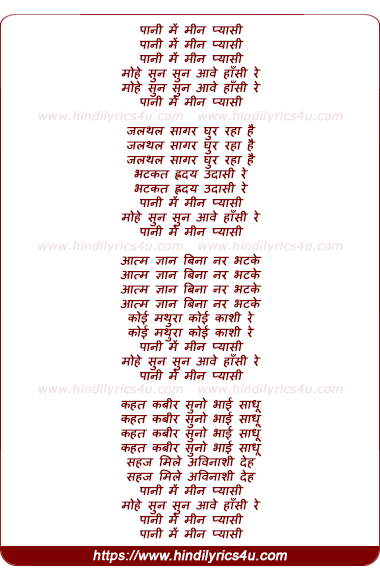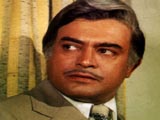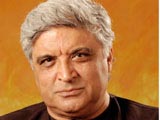| Thumb | Song Heading | Singer | Composer | Lyricist | Actor | Film (Year) | Category |
|---|---|---|---|---|---|---|---|
 | Paani Me Meen Pyasi 3.13 - 8 votes | Jagjit Singh | Jagjit Singh | Kabir | Kabir (Jagjit Singh) (2007) | Ghazals |
Video of this song from youtube
Lyrics of Paani Me Meen Pyasi - पानी में मीन प्यासी
pani me meen pyasi
pani me meen pyasi
pani me meen pyasi
mohe sun sun aave hansi re
mohe sun sun aave hansi re
pani me meen pyasi
jalthal sagar ghur raha hai
jalthal sagar ghur raha hai
jalthal sagar ghur raha hai
bhatkat hirdy udasi re
bhatkat hirdy udasi re
pani me meen pyasi
mohe sun sun aave hansi re
pani me meen pyasi
aatm gyan bina nar bhatke
aatm gyan bina nar bhatke
aatm gyan bina nar bhatke
aatm gyan bina nar bhatke
koi mathura kaashi re
koi mathura kaashi re
pani me meen pyasi
mohe sun sun aave hansi re
pani me meen pyasi
kahat kabeer suno bahi sadhu
kahat kabeer suno bahi sadhu
kahat kabeer suno bahi sadhu
kahat kabeer suno bahi sadhu
sahaj mile avinaashi deh
sahaj mile avinaashi deh
pani me meen pyasi
mohe sun sun aave hansi re
pani me meen pyasi
pani me meen pyasi
pani me meen pyasi
pani me meen pyasi
mohe sun sun aave hansi re
mohe sun sun aave hansi re
pani me meen pyasi
jalthal sagar ghur raha hai
jalthal sagar ghur raha hai
jalthal sagar ghur raha hai
bhatkat hirdy udasi re
bhatkat hirdy udasi re
pani me meen pyasi
mohe sun sun aave hansi re
pani me meen pyasi
aatm gyan bina nar bhatke
aatm gyan bina nar bhatke
aatm gyan bina nar bhatke
aatm gyan bina nar bhatke
koi mathura kaashi re
koi mathura kaashi re
pani me meen pyasi
mohe sun sun aave hansi re
pani me meen pyasi
kahat kabeer suno bahi sadhu
kahat kabeer suno bahi sadhu
kahat kabeer suno bahi sadhu
kahat kabeer suno bahi sadhu
sahaj mile avinaashi deh
sahaj mile avinaashi deh
pani me meen pyasi
mohe sun sun aave hansi re
pani me meen pyasi
pani me meen pyasi
Comments on song "Paani Me Meen Pyasi"
Dharmadoot on Tuesday, August 16, 2011
Swami Anand Swabhav Dharmadoot अनंत यात्रा है जीवन . मार्ग ही है मंजिल . इस
गीत को आँख बंद करके महसूस करो . उस प्यार के समंदर को जिसने घेरा है हमें
चारों तरफ से . उस प्यार के सागर को मैं ओशो कहता हूँ. हम सब उस अनंत के सागर
की मछलियाँ है . ओशो प्रेम दूत
Swami Anand Swabhav Dharmadoot अनंत यात्रा है जीवन . मार्ग ही है मंजिल . इस
गीत को आँख बंद करके महसूस करो . उस प्यार के समंदर को जिसने घेरा है हमें
चारों तरफ से . उस प्यार के सागर को मैं ओशो कहता हूँ. हम सब उस अनंत के सागर
की मछलियाँ है . ओशो प्रेम दूत
frust from life on Saturday, January 22, 2011
@gabrudesh5abda its meaning can not be explained but one needs to realize
it and feel it .. everyone will have there own translation ..probably it
says god is omnipresent and we are all surrounded by god in and out ...but
we still keep looking for him here and there. In the end he says without
knowledge of atma or soul ..we will always roam here and there but we will
never find mukti
@gabrudesh5abda its meaning can not be explained but one needs to realize
it and feel it .. everyone will have there own translation ..probably it
says god is omnipresent and we are all surrounded by god in and out ...but
we still keep looking for him here and there. In the end he says without
knowledge of atma or soul ..we will always roam here and there but we will
never find mukti
frust from life on Friday, March 04, 2011
@gabrudesh5abda any time...I can suggest you more songs to follow if you
are looking for kabir saheb songs..one of my fav is bhala hui mery gagri
futi
@gabrudesh5abda any time...I can suggest you more songs to follow if you
are looking for kabir saheb songs..one of my fav is bhala hui mery gagri
futi
frust from life on Saturday, January 22, 2011
@gabrudesh5abda also saheb hints at following Sahej yog ...to find the god
@gabrudesh5abda also saheb hints at following Sahej yog ...to find the god
| Movie | Film Cast | Singer | Lyricist | Composer | Director | Producer |
|---|---|---|---|---|---|---|
 Kabir (Jagjit Singh) (2007) |
Jagjit Singh | Kabir | Jagjit Singh |
HindiGeetMala Search Panel - Songs & Films







Kabir sahib was the greatest proponent of advaita vedanta in verse form. In
advaita, the great equation of Atman = Brahman emerged. Human Atman (soul)
is eternal and identical with Brahman, the unknowable and undescribable
Ultimate Reality, which is both immanant (pervades the universe)
and transcendent (is beyond the universe). The path to Brahman is through
the knowledge of Atman which is the self of man. Self-realization by
looking inwards, and seeking God, present in the Chit (higher
consciousness) of man is the goal of mankind. It is simple as well
as difficult. One has to think: I am not the body, mind, the intellect, I
am not the nama rupa (name and form), I am eternal, immortal, Atman seeking
to idenify with Brahman. This is Moksha.